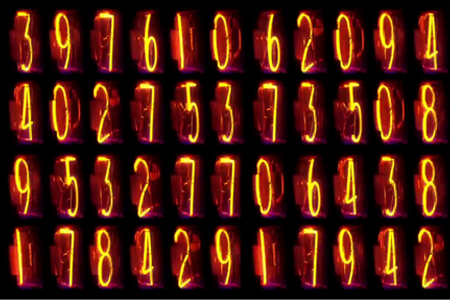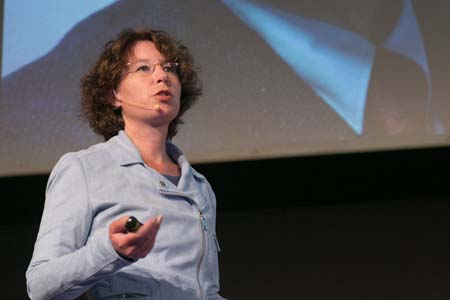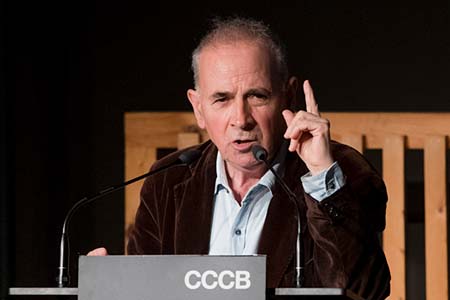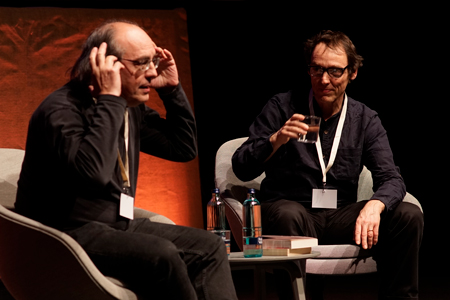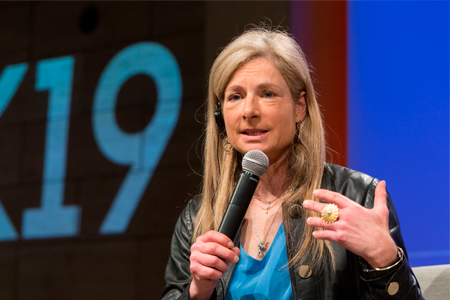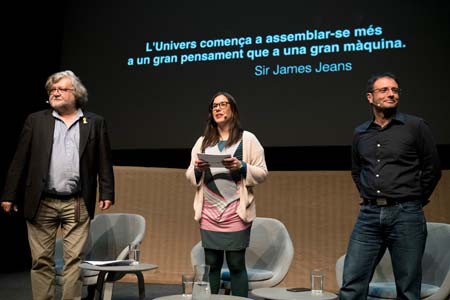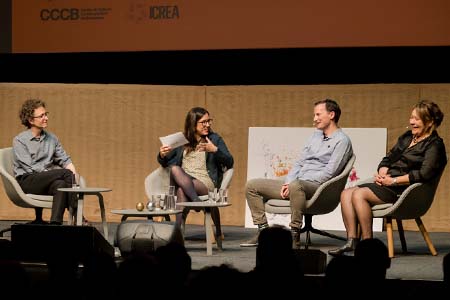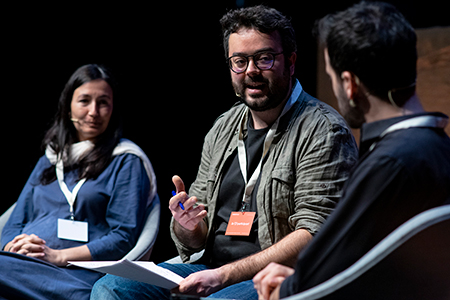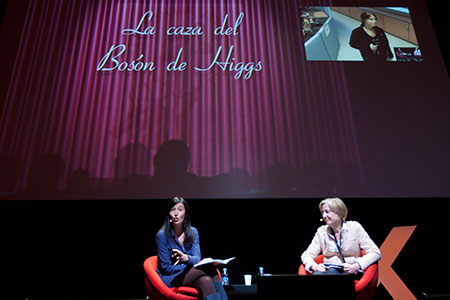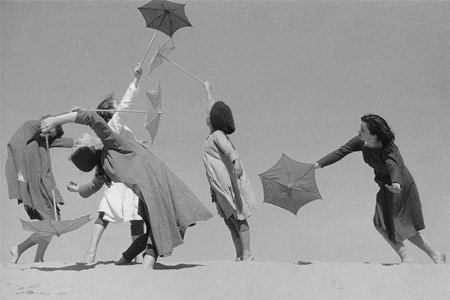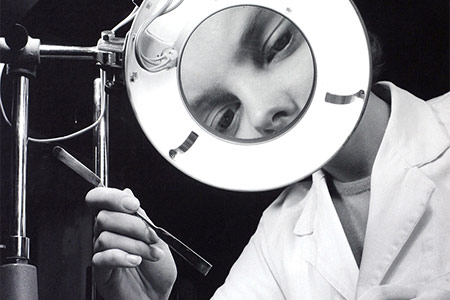What do we know about quantum physics?
Everything around us is made up of tiny particles, hidden from our senses. Quantum physics studies this minuscule universe, comprised of matter and energy. The laws governing quantum physics are strange and surprising, often difficult to understand and pose philosophical challenges. What is knowledge? Can we describe reality precisely? What information do we have about nature? Through the “Quantum” project and the associated debates and activities, we seek to contribute our bit to understanding this discipline. Our approach to quantum physics is open and based on the idea that science, art and thought go hand in hand. This list is just a taste of the contents being generated at the CCCB with quantum physics.
A Quantum World
Soy Cámara online
This episode of Soy Cámaratakes a look at quantum physics and reflects on its importance in our everyday lives.
Sabine Hossenfelder
How Beauty Leads Physics Astray Quantum
Throughout history, many scientific equations have been deemed beautiful, harmonious, or elegant. In Sabine Hossenfelder’s opinion, this use of adjectives shows that theoretical physicists often rely on arguments based on beauty when developing fundamentally new laws of nature. She suggests ...
Víctor Gómez Pin
The Destiny of Quantum Physics
In this lecture, the philosopher Víctor Gómez Pin discusses the relationship between physics and philosophy throughout western history and describes the links between classical thinkers and present-day physics.
Philip Ball and José Ignacio Latorre
Keys Aspects and Dilemmas of the Quantum Story
Despite this science still being in its infancy, humans are able to understand and manipulate material at the subatomic level and probe the origins and development of the universe. Scientific development provides the basis for introducing a new disruptive technology: quantum computing. The ...
Lisa Randall
How Physics Scales the Universe
Quantum theories help us to understand a reality that is hidden from our senses, but which affects our daily lives more than we can imagine. Lisa Randall is one of the most important female scientists of our time, author of seminal works that have contributed to our understanding of the universe ...
Maciej Lewenstein and David Mateos
What do we mean when we speak of quantum physics?
The ICREA research professors Maciej Lewenstein (ICFO-UPC) and David Mateos (ICCUB) talk about quantum physics, explaining why it has shaken up our understanding of nature and revealing which aspects of the theory are still a mystery. This session includes a “Free Jazz” show featuring ...
Antonio Acín, Aurelio Juste and Clivia Sotomayor
A quantum future: the next technological revolution?
Over the years, computing has become the main field of quantum experimentation. The quantum computers of the future, capable of doing enormous calculations at high speed and of factoring large numbers, can also decipher the whole of present-day cryptography. What political, economic, and social ...
Víctor Sala, Joan Burdeus and Sonia Fernández-Vidal
Why Are Scriptwriters Obsessed with Physics?
Is it a coincidence that Walter White’s alter ego in Breaking Bad is called Heisenberg? Can you write a happy ending after the Uncertainty Principle? Scriptwriters should not ignore science when writing, as some of the most passionate stories to be serialised for TV are those that have dug deep into quantum physics.
The Quantum Sense
Marta García-Matos
Quantum physics highlights the need for nonsensical humour to give sense to the world: from G. K. Chesterton at his sharpest to the Douglas Adams at his most inquisitive.
The Quantum Sense II: Paradoxes
Marta García-Matos
In the history of quantum physics, three types of paradoxes exist: those that challenge classical physics, those that challenge intuition and common sense, and those that challenge quantum physics itself.
The Quantum Sense III: Quantum Information
Marta García-Matos
The change to the quantum model is gentler if physics is considered from the viewpoint of information
The Quantum Sense IV: Why?
Marta García-Matos
Quantum physics questions several of the intuitive conceptions that we construct following daily interaction with the physical world to make sense of it. One of the most profound is causality, because quantum physics shows that an event can exist without any cause.
